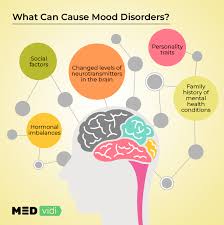The Importance of Sleep Disorder Testing
Sleep is a fundamental aspect of our overall health and well-being. It plays a vital role in our physical, mental, and emotional functioning. However, many individuals suffer from sleep disorders that can significantly impact their quality of life.
Identifying and diagnosing sleep disorders is crucial for effectively managing these conditions. One way to determine if you have a sleep disorder is by taking a sleep disorder test. These tests are designed to assess various aspects of your sleep patterns and behaviors to help healthcare professionals make an accurate diagnosis.
Types of Sleep Disorder Tests
There are several types of tests that can be used to evaluate different sleep disorders:
- Polysomnography (PSG): This test involves monitoring various physiological parameters during sleep, such as brain activity, eye movements, heart rate, and breathing patterns. PSG is often used to diagnose conditions like sleep apnea, narcolepsy, and REM behavior disorder.
- Multiple Sleep Latency Test (MSLT): MSLT measures how quickly you fall asleep during the day and assesses your level of daytime drowsiness. It is commonly used to diagnose narcolepsy.
- Home Sleep Apnea Test (HSAT): This test allows you to monitor your breathing patterns at home using portable devices. HSAT is often used to diagnose obstructive sleep apnea.
- Actigraphy: Actigraphy involves wearing a device that tracks your movement and activity levels during sleep. This test can provide valuable information about your sleep-wake patterns and circadian rhythms.
Benefits of Sleep Disorder Testing
Undergoing a sleep disorder test can offer several benefits:
- Accurate Diagnosis: Testing can help healthcare providers accurately diagnose the specific type of sleep disorder you may have.
- Treatment Planning: With a clear diagnosis, healthcare professionals can develop an effective treatment plan tailored to your individual needs.
- Improved Quality of Life: By addressing underlying sleep issues, you can experience improved quality of life, better overall health, and enhanced daytime functioning.
If you suspect that you may have a sleep disorder or are experiencing persistent symptoms such as excessive daytime fatigue, difficulty falling or staying asleep, or loud snoring, consider talking to your healthcare provider about undergoing a sleep disorder test. Early detection and intervention can make a significant difference in managing sleep disorders and improving your well-being.
Unlocking Better Sleep: 8 Benefits of Sleep Disorder Testing
- Accurate diagnosis of sleep disorders
- Tailored treatment plans based on test results
- Identification of specific sleep issues for targeted intervention
- Improved quality of life through better sleep management
- Enhanced understanding of individual sleep patterns and behaviors
- Early detection of potential health risks associated with untreated sleep disorders
- Validation of symptoms experienced by individuals with suspected sleep problems
- Empowerment through proactive approach to addressing sleep-related concerns
Challenges of Sleep Disorder Testing: Cost, Discomfort, and Inconvenience
Accurate diagnosis of sleep disorders
Accurate diagnosis of sleep disorders is a crucial benefit of undergoing sleep disorder testing. By identifying the specific type of sleep disorder a person may have, healthcare providers can tailor treatment plans to address the underlying issues effectively. Whether it’s sleep apnea, narcolepsy, insomnia, or another condition, a precise diagnosis allows for targeted interventions that can lead to improved sleep quality and overall well-being. Early detection through accurate diagnosis empowers individuals to take proactive steps in managing their sleep disorders and ultimately enhances their quality of life.
Tailored treatment plans based on test results
Tailored treatment plans based on sleep disorder test results offer individuals a personalized approach to managing their sleep issues. By analyzing the specific patterns and characteristics identified in the test, healthcare professionals can design treatment strategies that address the root cause of the sleep disorder. This customized approach increases the effectiveness of interventions, leading to improved outcomes and better overall quality of sleep. Whether it involves lifestyle modifications, behavioral therapies, or medical interventions, tailored treatment plans ensure that individuals receive targeted care that meets their unique needs, ultimately enhancing their well-being and quality of life.
Identification of specific sleep issues for targeted intervention
The benefit of undergoing a sleep disorder test lies in its ability to identify specific sleep issues, allowing for targeted intervention and treatment. By pinpointing the underlying cause of sleep disturbances, individuals can receive tailored interventions that address their unique needs. Whether it’s diagnosing conditions like sleep apnea, insomnia, or narcolepsy, a comprehensive sleep disorder test can provide valuable insights that guide healthcare professionals in developing effective strategies to improve sleep quality and overall well-being.
Improved quality of life through better sleep management
Improved quality of life through better sleep management is a significant benefit of undergoing a sleep disorder test. By identifying and addressing any underlying sleep issues through testing, individuals can experience enhanced overall health, increased daytime functioning, and improved well-being. Effective management of sleep disorders can lead to better restorative sleep, reduced daytime fatigue, enhanced cognitive function, and a greater sense of vitality and alertness throughout the day. Ultimately, the positive impact of improved sleep quality on one’s quality of life cannot be overstated, highlighting the importance of early detection and intervention through proper testing and diagnosis.
Enhanced understanding of individual sleep patterns and behaviors
By undergoing a sleep disorder test, individuals can gain an enhanced understanding of their individual sleep patterns and behaviors. This detailed insight into how they sleep can help identify any irregularities or disruptions in their sleep cycle. Understanding these patterns can lead to targeted interventions and personalized strategies to improve the quality and duration of their sleep. By recognizing specific behaviors that may be impacting their sleep, individuals can make informed lifestyle changes and adjustments to promote better overall sleep health.
Early detection of potential health risks associated with untreated sleep disorders
Early detection of potential health risks associated with untreated sleep disorders is a significant benefit of undergoing a sleep disorder test. Identifying and diagnosing sleep disorders in their early stages can help individuals mitigate the risks of developing serious health conditions such as cardiovascular disease, hypertension, diabetes, and cognitive impairments. By addressing sleep issues promptly through appropriate treatment and management strategies, individuals can reduce the impact of these potential health risks and improve their overall well-being. Regular screening and early intervention play a crucial role in maintaining optimal health and preventing long-term complications related to untreated sleep disorders.
Validation of symptoms experienced by individuals with suspected sleep problems
Validation of symptoms experienced by individuals with suspected sleep problems is a key benefit of undergoing a sleep disorder test. By taking the test, individuals can receive confirmation and validation of the symptoms they have been experiencing, such as difficulty falling asleep, frequent awakenings during the night, or excessive daytime fatigue. This validation not only helps in accurately diagnosing the specific sleep disorder but also provides individuals with a sense of reassurance that their concerns are being taken seriously and addressed effectively. Ultimately, validating these symptoms through testing can lead to appropriate treatment interventions and improved management of sleep-related issues for better overall health and well-being.
Empowerment through proactive approach to addressing sleep-related concerns
By undergoing a sleep disorder test, individuals can experience empowerment through a proactive approach to addressing sleep-related concerns. Taking the initiative to investigate and diagnose potential sleep disorders enables individuals to take control of their health and well-being. By identifying underlying issues and seeking appropriate treatment, individuals can improve their quality of sleep, overall health, and daily functioning. This proactive stance not only promotes better sleep but also instills a sense of empowerment in managing one’s own health and making informed decisions for a healthier lifestyle.
Cost
The cost of sleep disorder tests can be a significant barrier for many individuals, particularly if they are not covered by insurance. The expenses associated with these tests can make them inaccessible to those who may benefit from diagnosis and treatment. This financial burden can prevent individuals from seeking proper evaluation and care for their sleep issues, potentially leading to undiagnosed and untreated sleep disorders that impact their overall health and well-being.
Discomfort
One significant drawback of certain sleep disorder tests, like polysomnography (PSG), is the discomfort they can cause. During a PSG test, individuals are required to spend a night in a sleep clinic with multiple sensors attached to their body to monitor various physiological parameters. This experience can be unsettling and uncomfortable for some individuals, as they may find it challenging to relax and sleep naturally with the sensors attached. The discomfort associated with these tests may lead to disrupted sleep patterns, potentially affecting the accuracy of the test results and overall patient experience.
Inconvenience
Undergoing a sleep disorder test may pose the con of inconvenience, as it can disrupt your regular sleep routine and daily schedule. The process of preparing for and participating in the test may require adjustments to your bedtime habits and waking hours, potentially leading to temporary inconvenience. Moreover, the disruption in your sleep patterns during the testing period could result in increased fatigue and daytime drowsiness, affecting your overall well-being. Despite these challenges, addressing potential sleep disorders through testing remains crucial for identifying and managing underlying issues that can significantly impact your health and quality of life in the long run.



